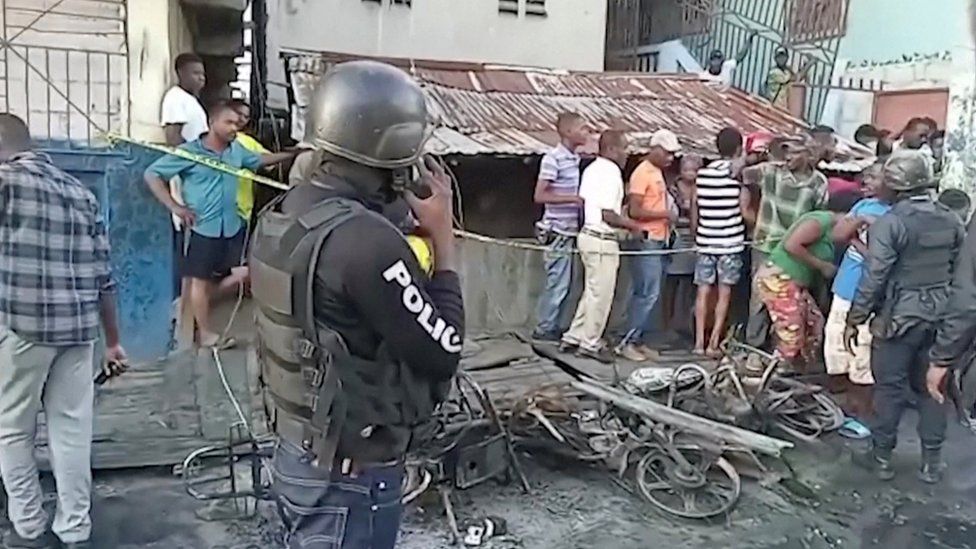Haiti fuel tanker blast kills dozens in Cap-Haïtien
At least 50 people have been killed after a fuel tanker exploded in northern Haiti, officials say.
Reports say the vehicle was involved in an accident in the city of Cap-Haïtien, and the victims had been trying to gather leaking fuel when it ignited.
Local hospitals have been overwhelmed by those injured in the blast.
Prime Minister Ariel Henry said the entire Caribbean nation was grieving after the accident, as he declared three days of mourning.
"I learned, with desolation and emotion, the sad news of the explosion last night in Cap-Haïtien," he wrote on Twitter on Tuesday.
Pictures posted on social media show an intense blaze at the scene of the accident in Haiti's second-largest city. One witness described the blast site as "hell".
Dozens of people were injured in the explosion and local medics said they feared the death toll would rise.
"We don't have the ability to treat the number of seriously burned people," a nurse at the Justinien University Hospital told AFP news agency. "I'm afraid we won't be able to save them all."
"We are overwhelmed," a local doctor told Haiti's Le Nouvelliste newspaper.
The government has announced that it is deploying field hospitals to the area to help those affected.
"We need human resources, and also material resources, namely, serum, gauze, and anything that can be used in case of serious burns," Mayor Pierre Yvrose said.
Deputy Mayor Patrick Almonor, who visited the site of the blast, told reporters the victims he saw had been so badly burned they were impossible to identify.
He added that about 20 houses in the area had also been set on fire by the explosion.
The United Nations office in Haiti said it stood ready to help national authorities respond to the tanker explosion.
It comes as Haiti is experiencing a severe fuel shortage as powerful gangs have seized control of much of the fuel distribution around the country. Haiti is also in the grip of a major economic and political crisis in the wake of President Jovenel Moise's assassination earlier this year.
https://www.bbc.com/news/world-latin-america-59650802





Post a Comment